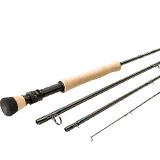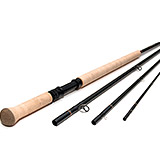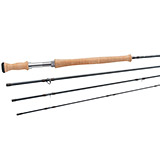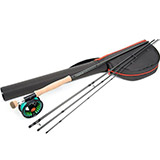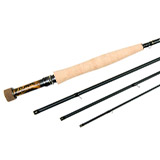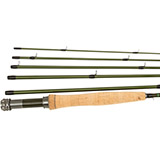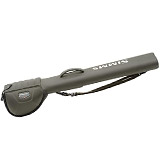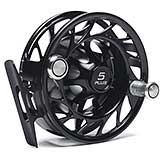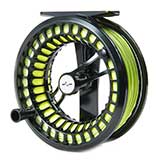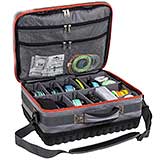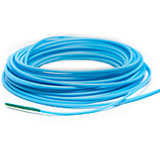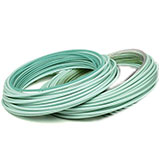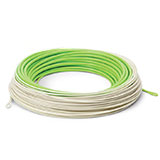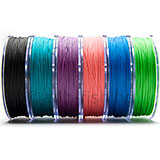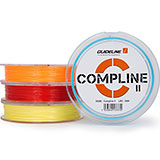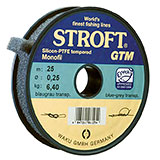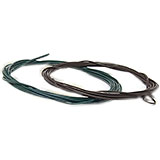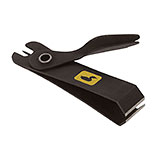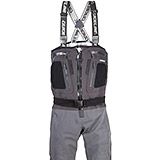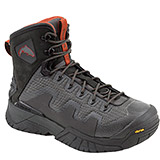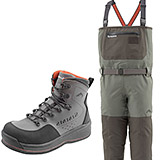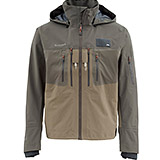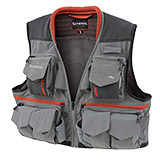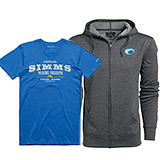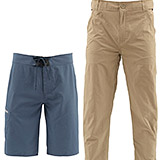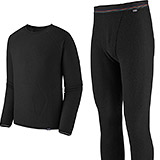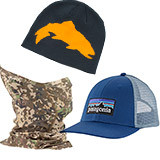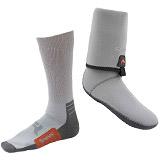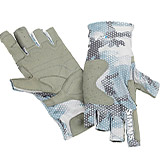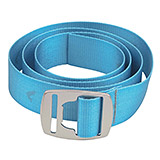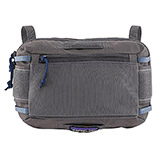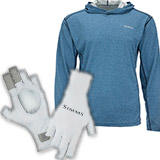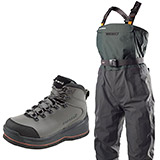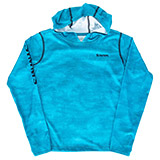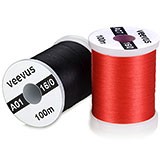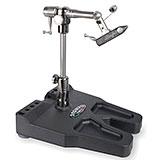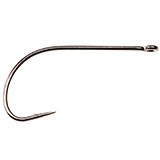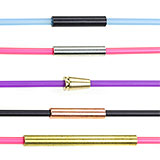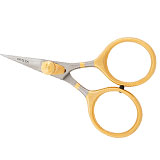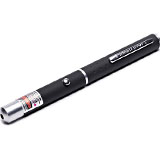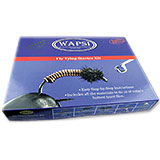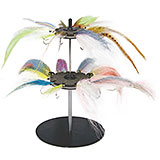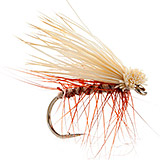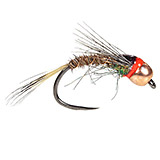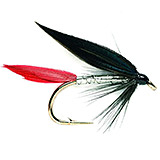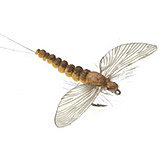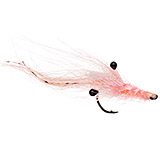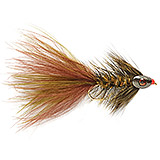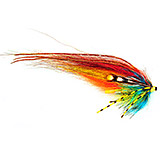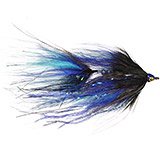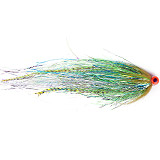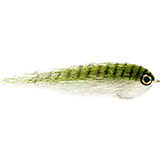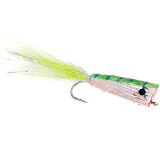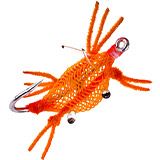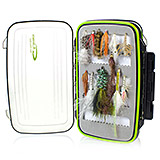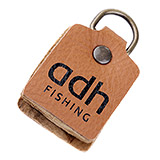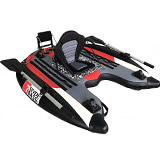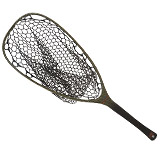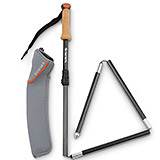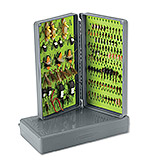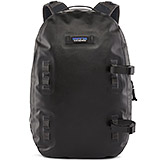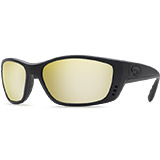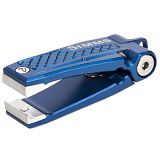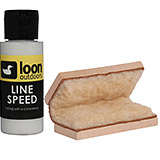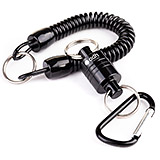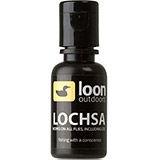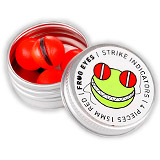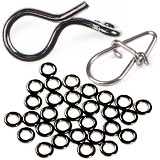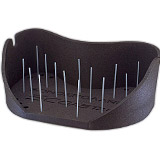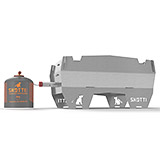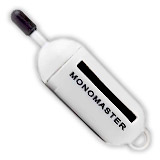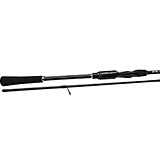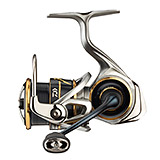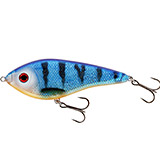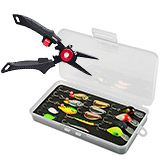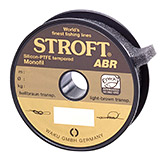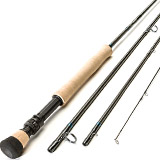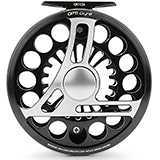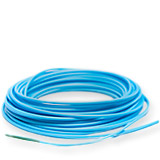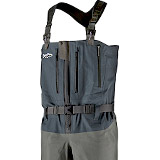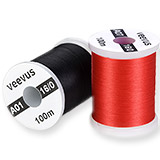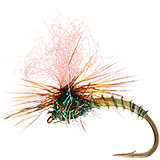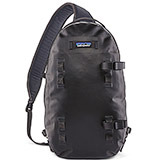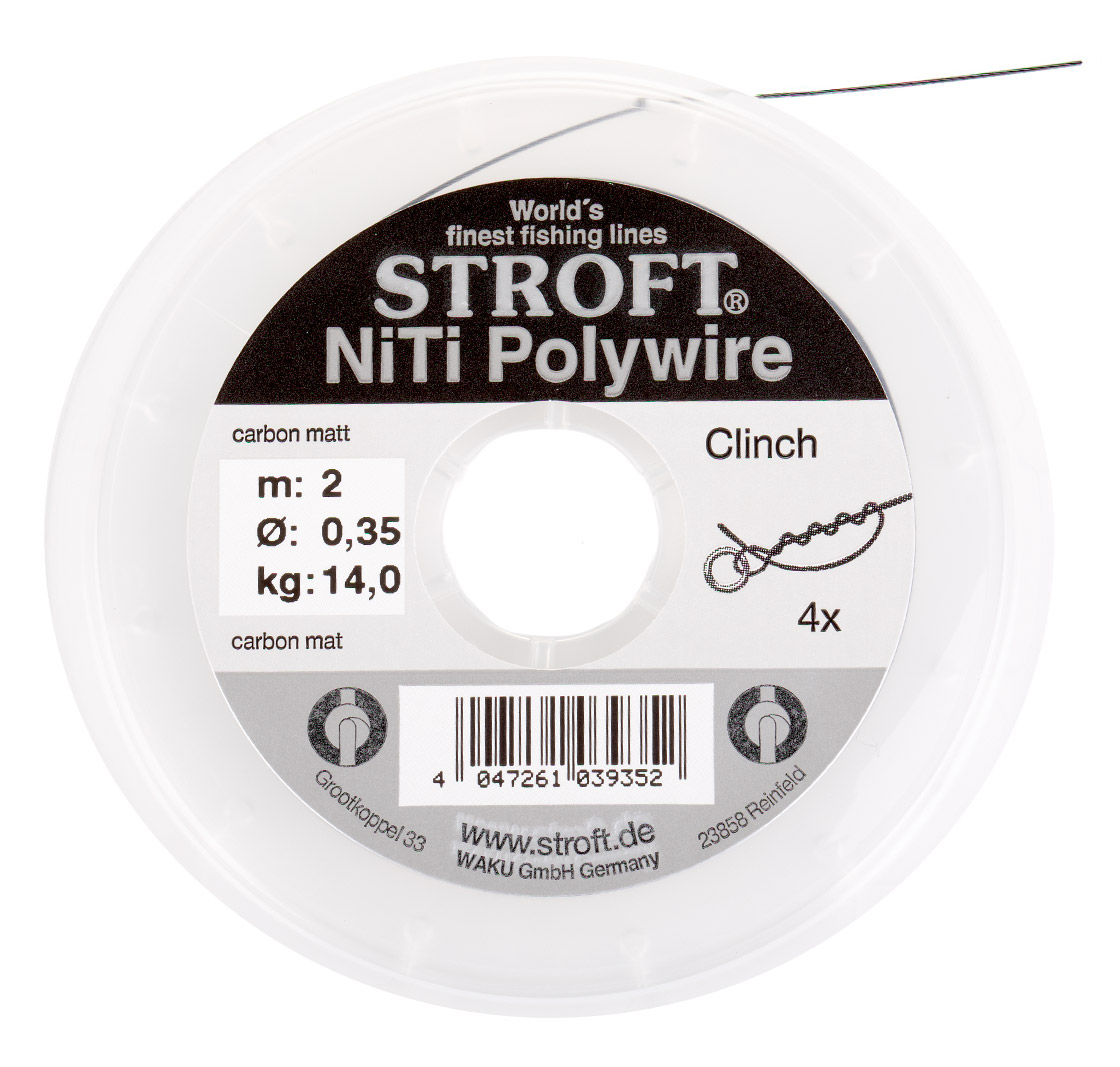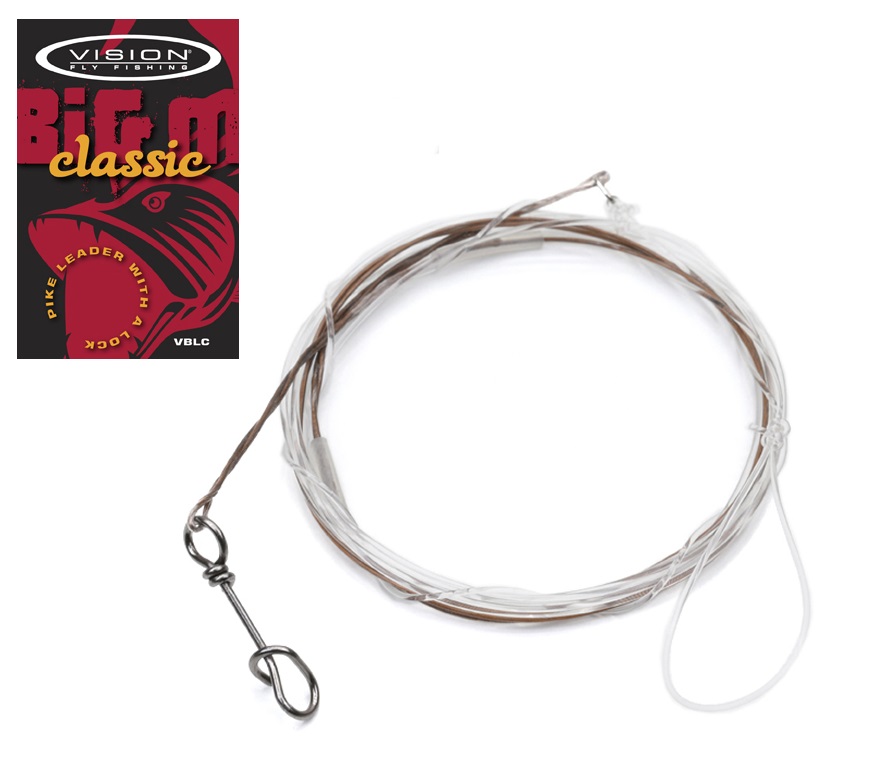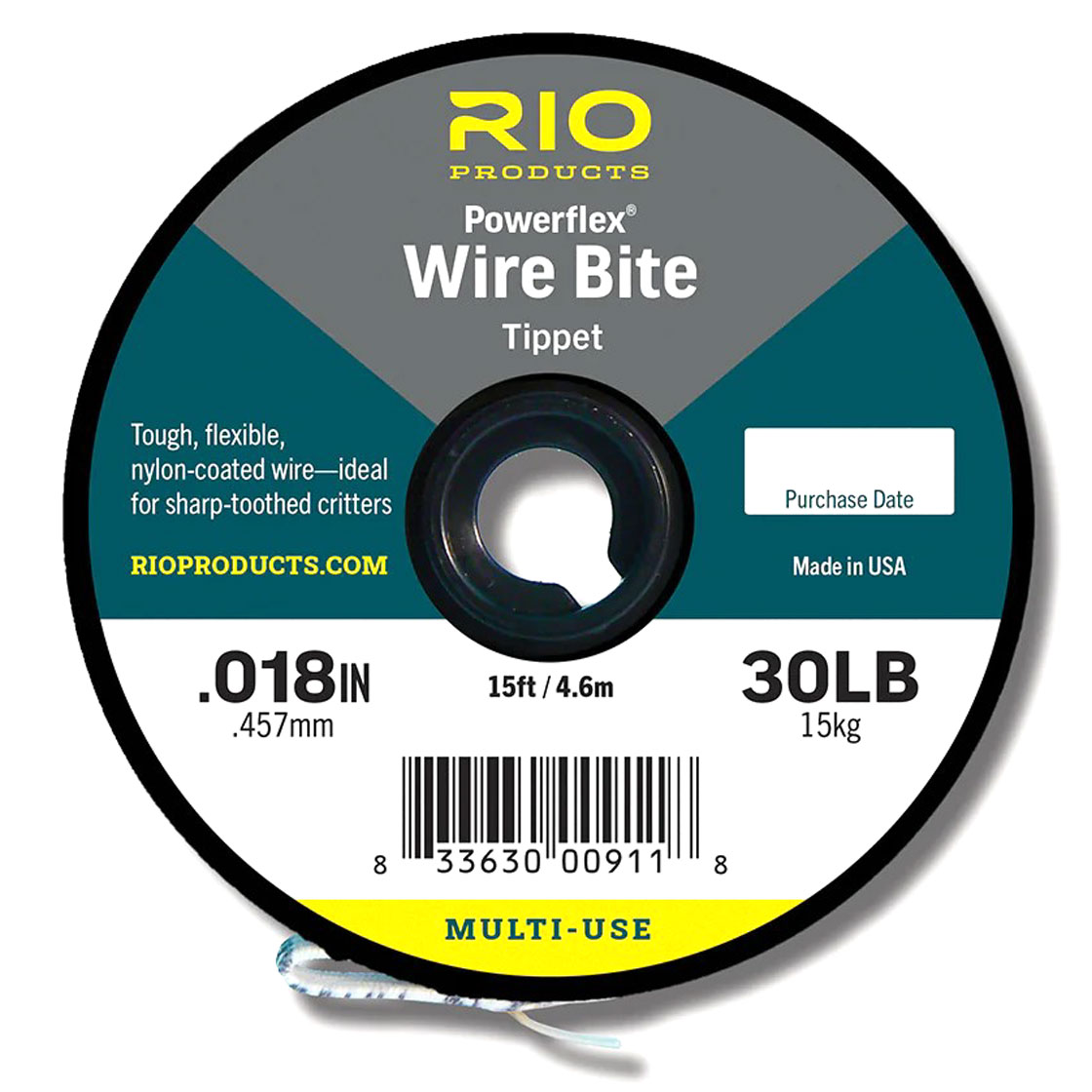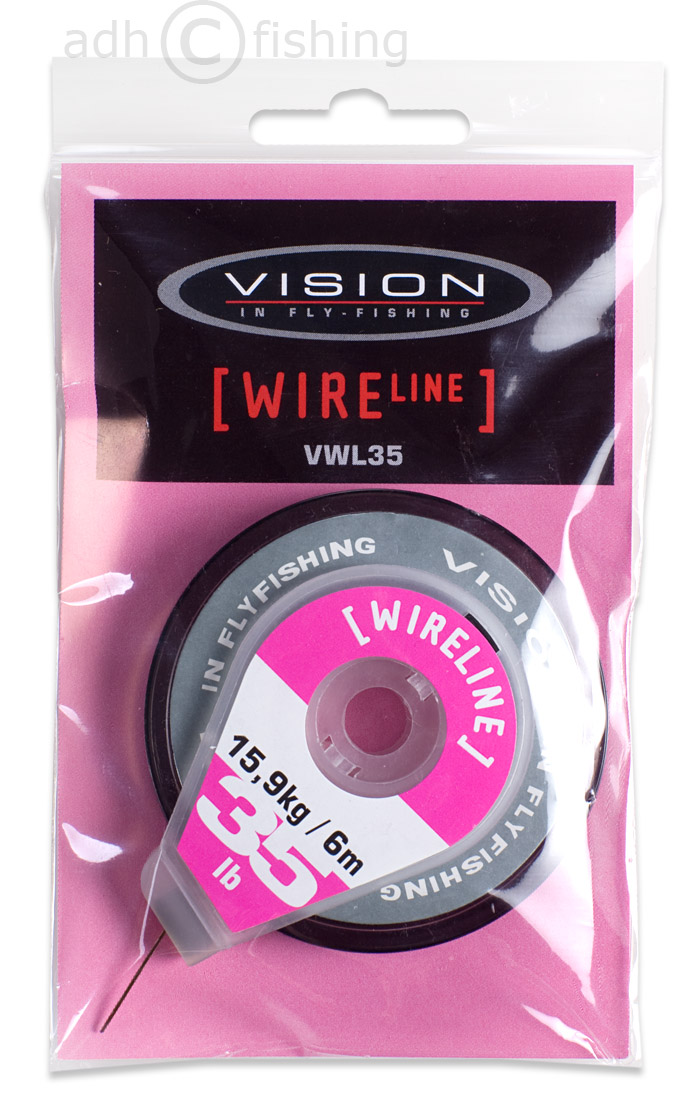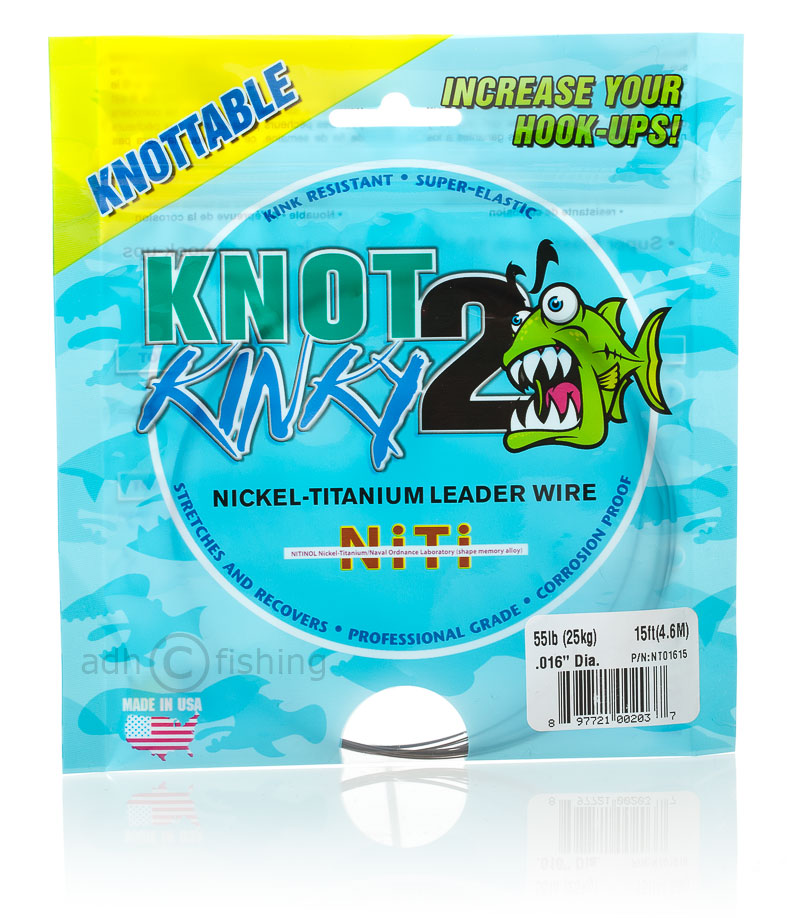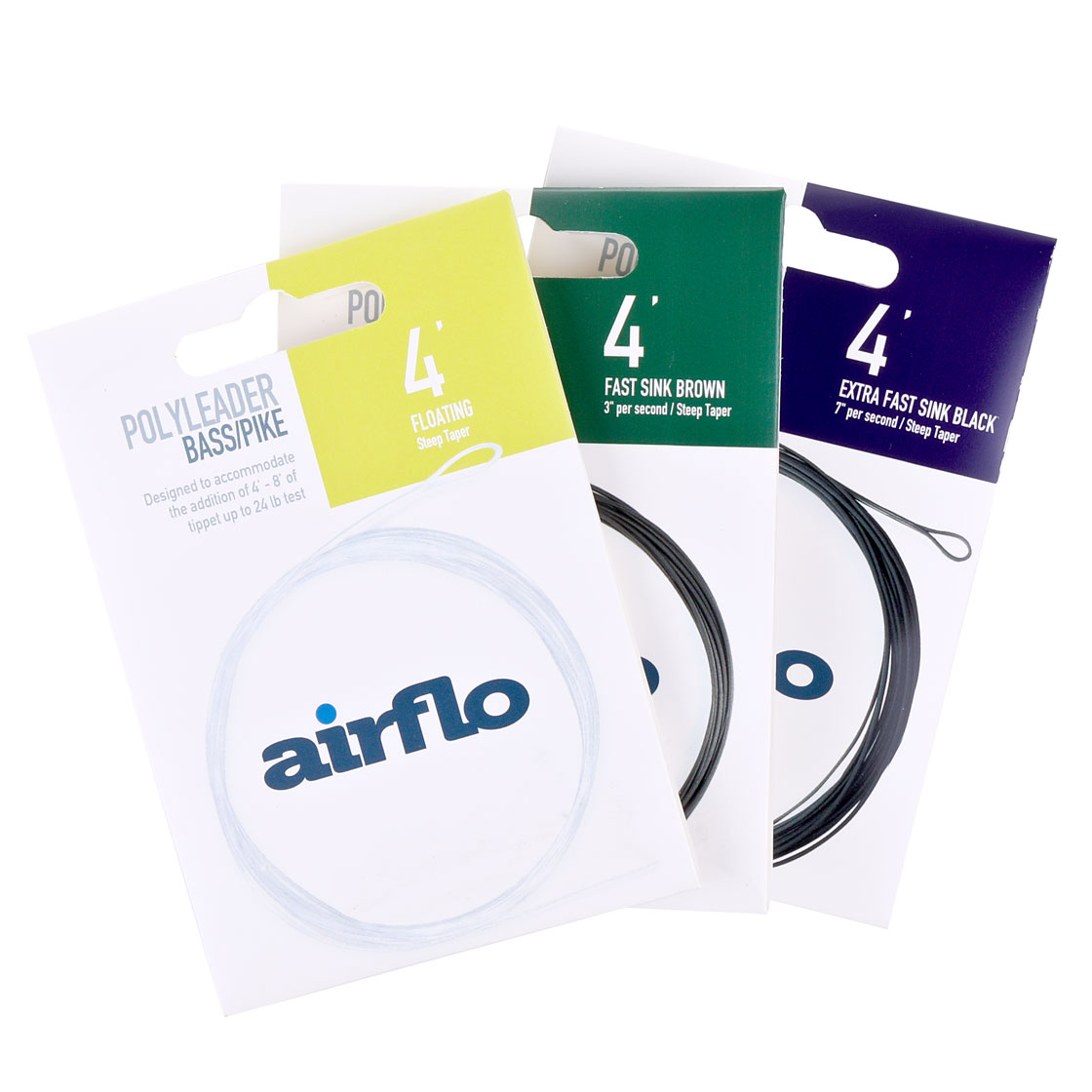Do you fish the best bite guard for pike?
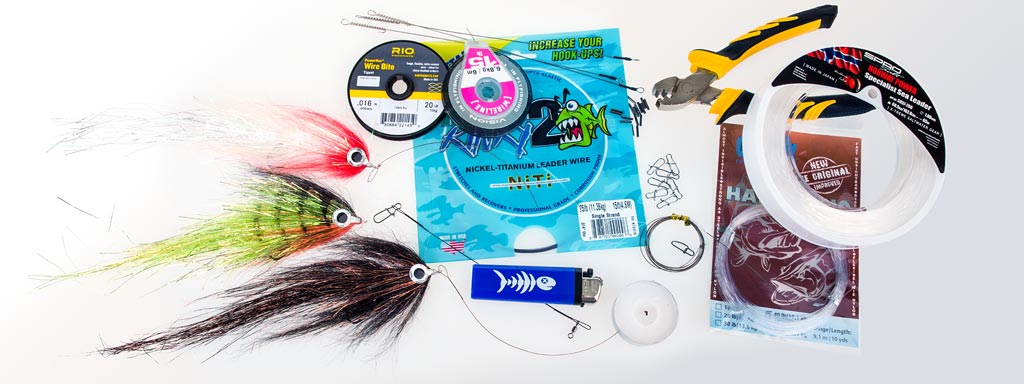
Have you ever had bloody experiences with pike teeth? These razor blades cut skin with ease and so they do with every normal tippet material. Besides getting angry about loosing flies, the real damage goes to the pike which might die with a big streamer blocking its mouth. At least that fact should motivate everyone to rig up suitable when fishing pike waters. But which leader setup is the right one? Some prefer hard mono like fishing salt water, others stick to a short wire tippet with carabiner...as for many decisions it's a matter of personal preference. That's why we want to give you a rough outline about different types of tippets and as well how to create your own bite guards:
Ready to Fish Tippets and Leaders
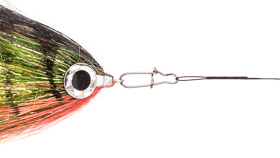
There are several plug and fish tippets as you may know from lure fishing. They normally come with carabiner for changing flies ultra fast and the end forms a loop or sometimes even a swivel where you connect leaders (e.g. polyleader) with an ease. Even fully rigged leader/tippet systems are available and if you have hard times with kinked bite guards, you may consider Jerk Tarces.
Ready to fish bite guard tippets: Stainless Wire Leader with Carabiner, Stainless Wire Leader with Carabiner and Swivel, Jerk Tarces
Leaders with bite guard tippets: Vision Big Mama Pike Leader and Airflo Titanium Predator Polyleader
Knotted Bite Guards
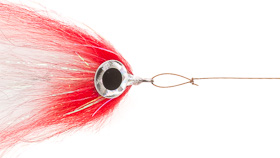
Furtunately many of our steel or titanium tippets are easy to knot. As spooled versions you can use them like every tippet material and tie your flies on. For an effective movement of pike flies and all other streamers we recommend any kind of loop knot. For example this very simple and fast to tie knot:
1. Tie one overhand knot at the tip of the bite guard and tighten it. Place a second loose overhand knot after the first one.
2. Thread the tip with the first knot through the eye of the hook.
3. Thread the first knot through the second knot.
4. Tighten the second knot so that the first can't slip through and then tighten everything holding the fly and the bite guard. Cut the loose end at the first knot to about 1-2 mm.
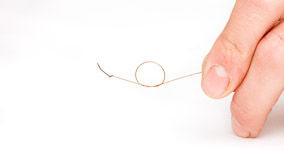
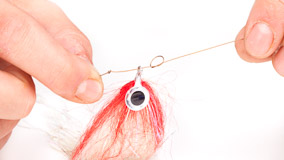
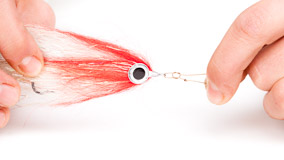
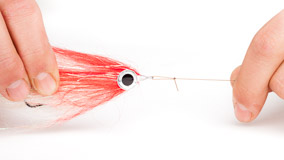
Other options to tie are e.g. a perfection loop or the non-slip loop knot. For a proper connection to your afterwards leader, Tippet Rings are a handy and secure solution. An Albright-knot or loops-knot to attach the leader will work as well.
Knottable bite guards: Rio Wire Bite, Vision Wire Line, Hends Pike Wire, Stroft NiTi Polywire.
Welded Bite Guards
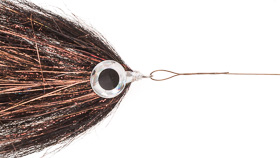
Either at home using a candle or on location with a lighter: welded pike tippets are a solid and clean way to go. The basic material is a steel wire with a plastic coating. You can twist these tippets and melt the coating so it joints to a firm welded connection that is less bulky than a knot. Preparing some tippets with carabiners and back loops will take away hassle when fishing. Another very common method is to just weld a back loop and use a knot as described above to tie the fly to the tip. For attaching the fly via welded loop (seen on the picture) you either need a third hand for the lighter or a way to hang in the streamer somewhere.
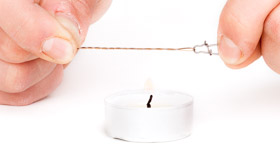
Be careful: The tippet must not burn! Strength will decrease drastically and you should weld a new loop.
Tippets able to weld: Rio Wire Bite, Vision Wire Line
Hard Mono
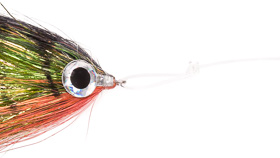
Some stick to it, others think it is way to risky. Hard Mono is a special tippet material that is harder and much more durable than standard mono-filaments. Its primary use is for salt water where it is exposed to both sharp teeth and razor shard coral edges. No wonder it can withstand pike fights on a regular basis. And for most of the time it will do the job, but there will always be a certain risk that you have to deal with. Decide for you own whether the benefits are worth it. One advantage compared to wire guard is the transparency of hard mono. That may result in more takes when fishing clear waters. Further it less prone to kink and easy to knot.
You can rig it like a piece of wire tippet. As a connection to your afterwards leader an Albright-knot is a good choice. A second possibility is to attach it directly to your fly line via loop-to-loop with a length of about 1,5m. The only disadvantage is that you have to bend the hook if you snag...
Hard Mono Tippets: Rio Fluoroflex, Spro Norway Specialist Sea Leader
How You Create Your Own Bite Guards

A crimping pliers allows you to create your own wire guards in different variations. Combine your favorite carabiners, the best wire and the perfect length. All you need are these recommendations:
- Crimping Pliers
- Sleeves (e.g. Spro Sleeves 1,4 mm)
- Wire Tippet (e.g. Knot2Kinky Nickle Titanium Wire 11,3 kg)
- Carabiners (e.g. Spro Fastlock Snap Size 3)
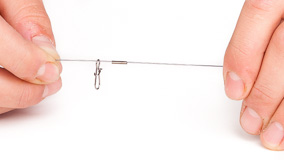
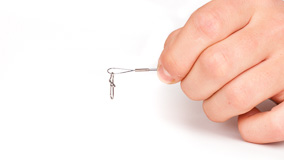
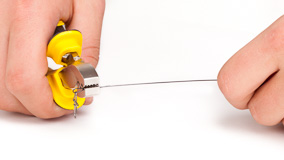
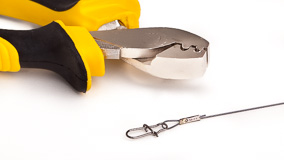
For mounting a bite guard you first thread the tippet through a sleeve and a carabiner. (1) Then you form a loop and thread the tippet once more through the sleeve. 1-2 mm overlap are just fine. (2) Now you grab the sleeve with your crimping pliers (use the small opening) without pinching and pull the long end of the tippet to scale the loop down to a neat size. Only then pinch the sleeve with power. (3) If there's a too long overlap left, you can cut it close to the sleeve now.
For the back end of your tippet you repeat the same steps skipping the carabiner. Instead you may use a swivel if wanted.
Please don't cut any wire tippet with your kitchen scissors! It will be damaged and probably you get in trouble. A small side-cutting pliers or fishing pliers with wire cutter (e.g. adh-fishing fresh and saltwater pliers) are more suitable ;-)
Which tippet length is recommended for pikes?
A minimum of 30 cm (12”) is a safe way to fish. Beneath that you might get cut by a big pike inhaling your fly deep. Especially knotted tippets are good with some extra inch because they shorten with each change of fly. The pike won't bother 2 or 4 inch more.
What fills the gap between tippet and fly line?
A short polyleader between your tippet and fly line works best. It ensures a clean turnover (unrolling the line to the fly) and is available in different sinking rates. As a shock-tippet we recommend using some short piece of mono-filament between tippet and polyleader. Its strength should be lower to be the first to brake. Tie a Tippet Ring in front of your polyleader so you don't have to re-tie it all the time.

